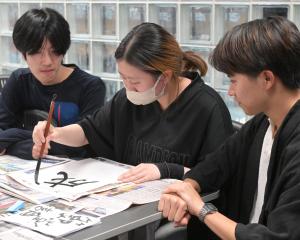
University of Otago public health research suggests that improving air quality in public buildings could save New Zealand around $1 billion annually, through reduced healthcare costs and improved productivity.
A new Public Health Communication Centre briefing is now calling for a co-ordinated national strategy to improve indoor air quality.
Briefing lead author and University of Otago public health researcher Associate Prof Julie Bennett said New Zealanders would not drink dirty water or eat unsafe food, but they rarely thought about the air they breathed.
"Because we spend around 90% of our lives indoors, the quality of that air is critical to our health and wellbeing.
"Access to clean air should be treated as a basic human right — just like safe drinking water."
Unlike food and water, which are regulated, New Zealand had no enforceable standards for indoor air quality.
This left millions of people breathing air contaminated with viruses, bacteria, dust, mould and chemical pollutants, she said.
"Poor air is often invisible and underestimated as it cannot be seen, smelt, or tasted.
"Stuffy rooms, headaches, asthma flare-ups and allergies are accepted as normal, masking preventable health risks."
She said the health and economic costs were substantial. Poor indoor air quality was linked to higher rates of respiratory disease, cardiovascular conditions and childhood asthma. It also affected learning and productivity, with workplaces and schools reporting lower concentration and higher absenteeism in poorly ventilated environments.
Assoc Prof Bennett said present building codes focused primarily on energy efficiency rather than health, and no national agency was responsible for indoor air quality.
This left decisions about ventilation and filtration to individuals and organisations. She said many other countries had dedicated agencies to set and enforce indoor air quality standards, such as the United States Environmental Protection Agency, Health Canada and the French Agency for Food, Environmental and Occupational Health & Safety.
Her briefing recommended New Zealand establish a "long overdue" national agency to develop standards, co-ordinate research, and lead a comprehensive strategy to improve indoor air quality.
It should include thresholds for pollutants and ventilation rates, alongside practical solutions such as upgraded ventilation and HEPA filtration in public buildings, she said.
"Covid-19 made us briefly aware of the air we share, but as masks came off, that focus faded.
"Clean indoor air is one of the most effective ways we can protect our health every day, not just during a crisis.
"It also helps us think more clearly, work more effectively and learn more easily, making it a lasting investment in both wellbeing and productivity."












